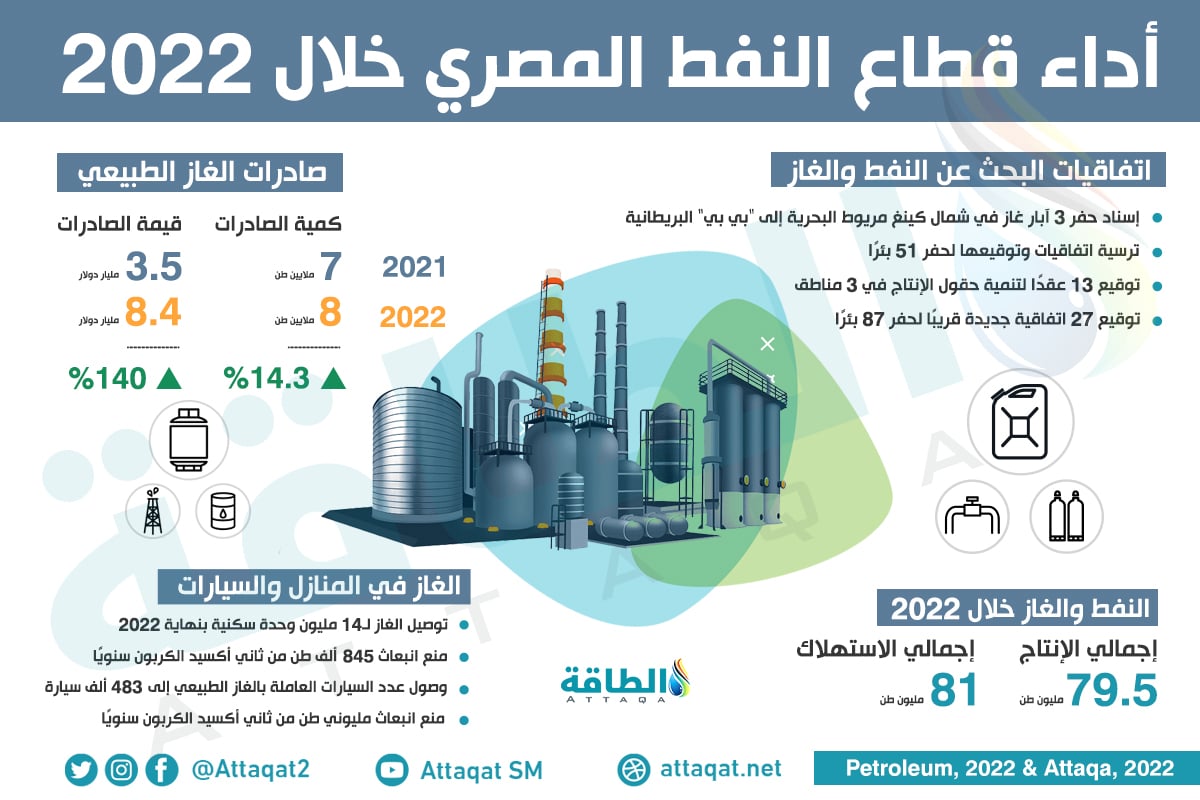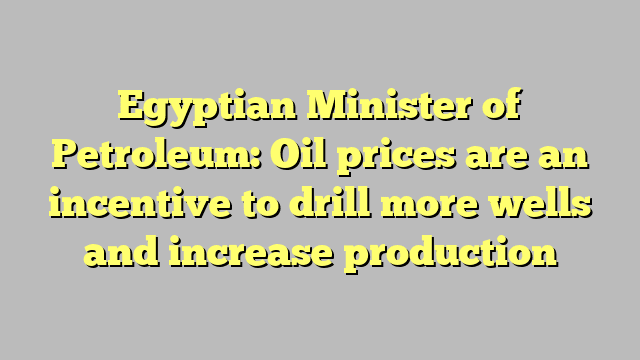Egyptian Minister of Petroleum, Tarek El-Molla, confirmed that the current rise in oil prices and their stability above $80 per barrel is an incentive to continue exploration and increase production.
Al-Mulla stressed the importance of the meetings that take place to discuss the development and increase of the current production rates of crude oil, and direct communication between all parties to the management, work and production system, in order to find solutions to all the challenges facing the Egyptian oil sector.
The Egyptian Minister of Petroleum indicated that the meetings are working on defining priorities to achieve the necessary integration, which in turn is reflected in increasing the productivity of companies and overcoming existing or emerging challenges.

exploitation of resources
During the periodic meeting of the Committee for Developing and Increasing Crude Oil Production Rates, which included Petro Zenima, Petro Sinai, Petro Shadwan, and South Malak in the Sinai Petroleum Region, Al-Mulla drew attention to the importance of finding innovative solutions and making the best use of the capabilities, resources, and operations facilities available in the oil regions, including the Sinai region. Antiquity and history.
He explained that the concession areas in these companies still have proven oil potentials that need more support for continuous cooperation and coordination between these companies.
The Egyptian Minister of Petroleum stressed that the current stage, with the rise in global oil prices, provides a strong incentive for the partners to intensify research and exploration work, drill more wells, and then increase production.

Sinai oil reserves
Minister Al-Mulla listened to presentations by the heads and representatives of the partners in the companies whose production is being developed and increased in the Sinai oil region.
The presentations included a review of the oil reserves that can be developed, the challenges facing this, and how to overcome them, according to the data seen by the specialized energy platform.
The Egyptian Minister of Petroleum stressed the importance of accelerating the development of the reserves that were offered, with full coordination through the committee to support this, especially with regard to drilling, repair and completion programs, commitment to rationalization programs and reduction of spending, and providing everything that would support the plans to increase the production of those companies.
He pointed out that field follow-up and presence at work sites and oil production in general are top priorities during the current stage.
The following infographic, prepared by the specialized energy platform, reviews the most prominent figures in the Egyptian oil sector in 2022:

Oil and gas production in Egypt
Oil and gas production in Egypt witnessed a decline during 2022, at a time when the production of oil derivatives increased, according to data seen by the specialized energy platform.
The report of the Ministry of Petroleum and Mineral Resources showed that the total production of oil wealth during the year 2022 amounted to about 97.5 million tons, compared to 82.4 million tons of oil equivalent in 2021.
Crude oil and condensate production declined to 27.8 million tons compared to 28.3 million tons in 2021, and gas production decreased in 2022 to 50.6 million tons compared to 53.1 million tons of gas in 2021.
On the other hand, the production of domestic gas (butane gas) increased to 1.1 million tons, compared to one million tons in 2021.
related topics..
Also read..

Leave a Reply